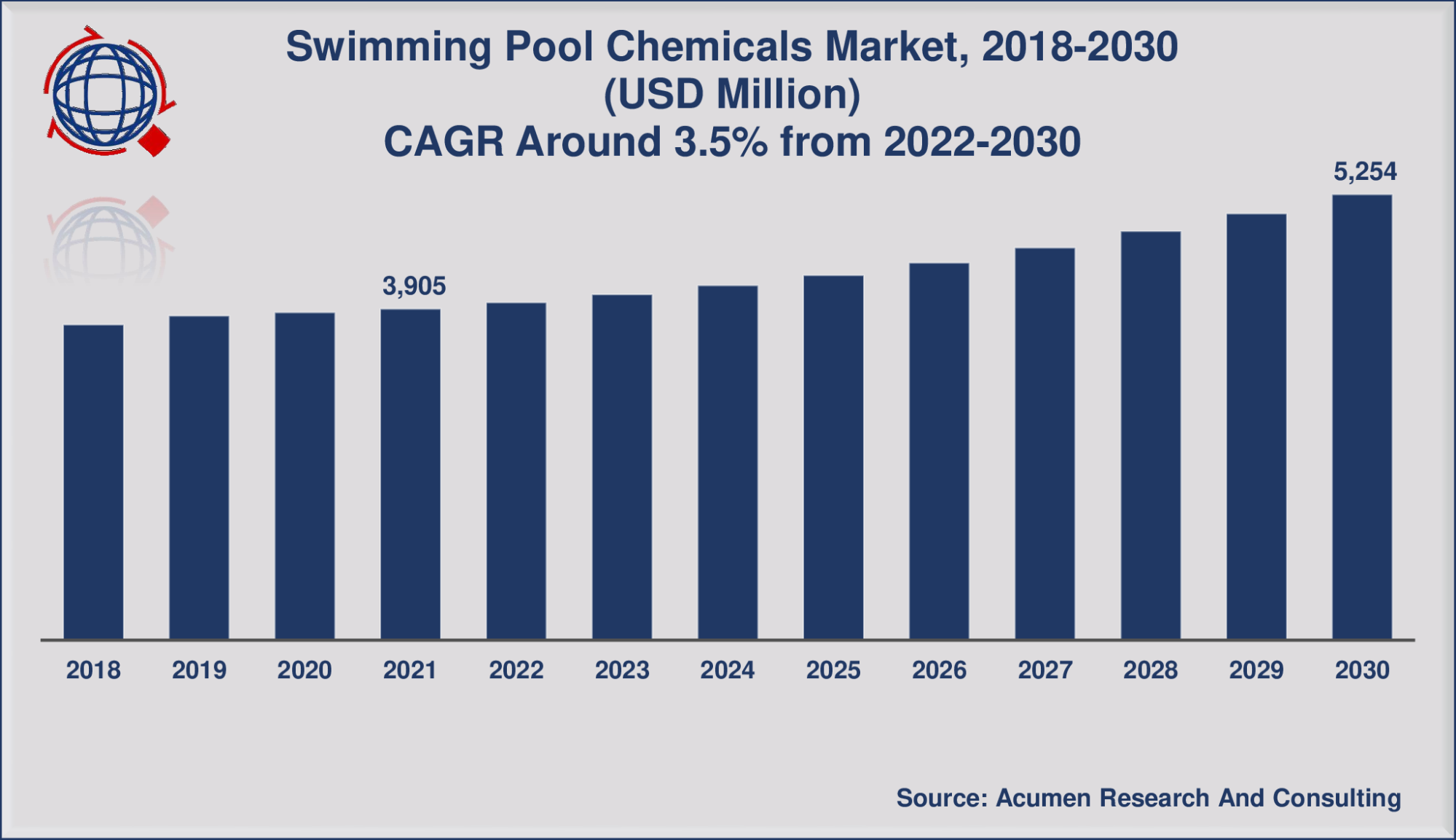
Your pool could be under siege from silent culprits that break down the chemistry makeup of your pool’s surfaces and equipment. As we anticipate summer and embrace spring cleaning season, it is important to recognize the effects corrosion has on pool equipment and swimmers if not remedied. Now is as good a time as any to proactively prepare your pool for the warm days of swimming and sunshine ahead and to ensure that your pool water chemicals and equipment are optimized with longevity in mind.
A RISE IN THE POOL CHEMICAL MARKET
Acumen Research and Consulting recently published a report titled “Swimming Pool Chemicals Market, Analysis Report and Region Forecast, 2022 - 2030”. According to their analysis, North America will account for roughly half of the total market share in the coming years. The presence of a large number of pools, an increasing number of fitness enthusiasts, and an increasing number of swimming competitions among schools and colleges are the primary factors driving the growth of the North American swimming pool chemicals industry. According to the Association of Pool and Spa Professionals, the United States has approximately 10.4million residential pools, with pool owners investing approximately $4 billion on maintenance each year. The study also projects that the swimming pool chemicals market size will reach USD 5,254 million by 2030, growing at 3.5% CAGR.

POOL CHEMISTRY CULPRITS
While the consumption of pool chemicals continues to grow, it is important pool professionals and homeowners are aware of ALL the ways corrosion can corrupt pool chemistry and affect longevity of pool equipment.
Whether it is high levels of chlorine in your water or pretty, albeit highly acidic mulch around your backyard, these culprits have the potential to erode and damage pool equipment. Mulch, for instance, brings high levels of phosphates and nitrates, and other chemicals you don’t want in your pool. Secondly, mulch is very acidic and holds in moisture. Wood mulch around your pool pump or heater blocks air flow, and the acidic humidity can be damaging for steel equipment, electrical motors and circuit boards.
Balancing pool water chemistry remains the most important rule of thumb for pool professionals and homeowners alike. The most corrosive agent around pools is acidic water chemistry. Whether it’s low pH, low alkalinity or low calcium hardness, each has the ability to destroy pool filters and heaters if not treated correctly.
A STRONGER SOLUTION
That said, how can people care for pool equipment to maximize their pool product longevity while knowing that corrosive pool chemistry can wreak havoc? Raypak has an innovative solution: NiTek heat exchanger technology. This technology has 900% more nickel compared to cupronickel in critical surfaces, and NiTek focuses on product longevity by reducing more than 50% scale formation.
NiTek also produces up to 2% more thermal efficiency than cupronickel, and the same thermal efficiency as copper. Focused on strength, NiTek is 300% more erosion resistant than copper, and 200% more than cupronickel.

As we look ahead to summer and warmer, longer pool days. Do your due diligence to prep your pool with the best products to fend off corrosion and optimize performance for your pool needs.
For more details please visit: www.raypak.com/nitek
REFERENCES
- NiTek: https://aqmag.co/Resource1
SOURCES FOR THIS ARTICLE
- https://aqmag.co/Source1
- Mulch acidity: https://aqmag.co/Source2
- “The most corrosive agent around pools is acidic water chemistry.”: https://aqmag.co/Source3



















